Dashboard: Filter Bricks
Main page content
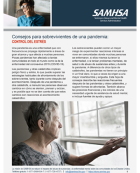
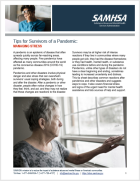
This tip sheet describes common reactions after pandemics and other disasters and suggests ways to cope. It also covers financial stress and signs of the urgent need for mental health assistance and lists sources of help and support.

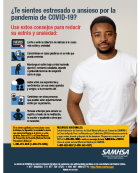
This flyer provides information and tips for coping during a pandemic as well as resources for additional assistance.
¿Te sientes estresado o ansioso por la pandemia de COVID-19?
Este folleto ofrece información y consejos para sobrellevar una pandemia, así como recursos para obtener asistencia adicional.

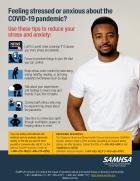
This flyer provides information and tips for coping during a pandemic as well as resources for additional assistance.
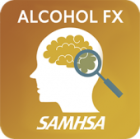
Alcohol’s Effects on the Brain (AlcoholFX) is a free, science-based app that teaches students ages 10 to 12 how alcohol can harm their brains if they drink. Based on lesson plans from SAMHSA’s Reach Out Now Initiative, the app can easily integrate with instruction in 5th- and 6th-grade classrooms. This app is only available on tablets.
AlcoholFX is divided into units that describe the six parts of the brain and how alcohol disrupts its function. Using the app:
- Students can engage in research-based, interactive games that explore brain science while they practice responses to difficult social situations involving alcohol.
- Educators can use science-based lessons plans, resources, and recorded scenarios to help students and parents learn about the dangers of alcohol to the developing brain.
- Parents can learn how alcohol affects their child's brain and can put their child's education and health at risk.
For more information, email SAMHSA at samhsainfo@samhsa.hhs.gov.

